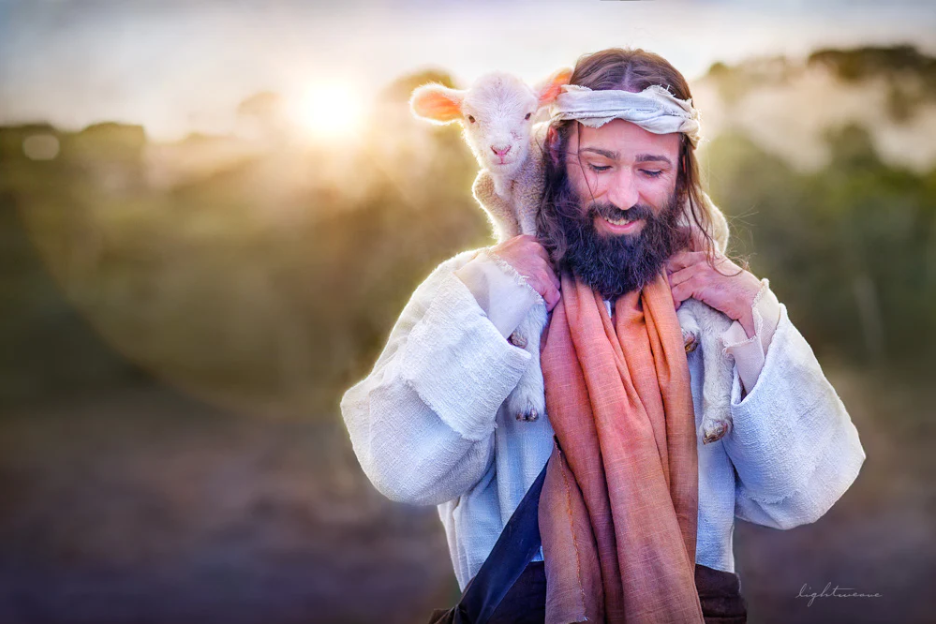This Rejoice & Praise God Sunday Open Thread, with full respect to those who worship God on the Sabbath, is a place to reaffirm our worship of our Creator, our Father, our King Eternal.
It’s also a place to read, post, and discuss news that is worth knowing and sharing. Please post links to any news stories that you use as sources or quote from.
In the QTree, we’re a friendly and civil lot. We encourage free speech and the open exchange and civil discussion of different ideas. Topics aren’t constrained, and sound logic is highly encouraged, all built on a solid foundation of truth and established facts.
We have a policy of mutual respect, shown by civility. Civility encourages discussions, promotes objectivity and rational thought in discourse, and camaraderie in the participants – characteristics we strive toward in our Q Tree community.
Please show respect and consideration for our fellow QTreepers. Before hitting the “post” button, please proofread your post and make sure your opinion addresses the issue only, and does not confront or denigrate the poster. Keep to the topic – avoid “you” and “your”. Here in The Q Tree, personal attacks, name-calling, ridicule, insults, baiting, and other conduct for which a penalty flag would be thrown are VERBOTEN.
In The Q Tree, we’re compatriots, sitting around the campfire, roasting hot dogs, making s’mores, and discussing, agreeing, and disagreeing about whatever interests us. This board will remain a home for those who seek respectful conversations.
Please also consider the Guidelines for posting and discussion printed here:
https://www.theqtree.com/2019/01/01/dear-maga-open-topic-20190101/
On this day and every day –
God is in Control
. . . and His Grace is Sufficient, so . . .
Keep Looking Up

Hopefully, every Sunday, we can find something here that will build us up a little . . . give us a smile . . . and add some joy or peace, very much needed in all our lives.
“This day is holy to the Lord your God;
do not mourn nor weep.” . . .
“Go your way, eat the fat, drink the sweet,
and send portions to those for whom nothing is prepared;
for this day is holy to our Lord.
Do not sorrow,
for the joy of the Lord is your strength.”


Psalm 23 is a beautiful poem that uses the image of God as shepherd. David, who penned this psalm, had been a shepherd himself and understood the parallel between the task of a shepherd caring for his sheep and of God caring for His people. Sheep are totally dependent on the shepherd for food, water, leadership, and guidance as they move from place to place, just as we are dependent upon God for all that we need. Sheep depend on the shepherd for protection from a wide range of predators and dangers, just as we look to God as our Protector and Defender. In the New Testament, Jesus reveals Himself to be the Good Shepherd of His people (John 10:11, 14), fulfilling the Old Testament prophecy that God would come to shepherd His people (Ezekiel 34:7–16, 23).
Psalm 23:4, addressing the Lord Shepherd, says, “Your rod and your staff, they comfort me.” David bases this description on the practices of shepherds in his day. Shepherds of the time commonly carried a rod and staff as essential to their work.
The rod mentioned in Psalm 23 is a symbol of the Lord’s strength and protection. The rod was a sturdy wooden stick used as a weapon to fight off wild animals who might have hoped to make an easy meal out of an otherwise defenseless flock of sheep. The shepherd also used the rod to help him keep count of the sheep within the flock (as alluded to in Leviticus 27:32). Young David recounted an incident to King Saul in which he probably used his shepherd’s rod: “Your servant has been keeping his father’s sheep. When a lion or a bear came and carried off a sheep from the flock, I went after it, struck it and rescued the sheep from its mouth. When it turned on me, I seized it by its hair, struck it and killed it” (1 Samuel 17:34–35).
The staff mentioned in Psalm 23 is a symbol of the Lord’s guidance and lovingkindness. The staff was a long, slender stick, often hooked at the tip, used primarily to direct the flock. Sheep are notorious wanderers, and once away from the shepherd’s watchful eye, they get into all sorts of trouble (Matthew 18:12–14). The shepherd used his staff to keep his sheep out of danger and close to himself. If a sheep became trapped in a precarious position, the shepherd would loop the curved end of the staff around the neck of the sheep and retrieve it back to safety.
W. Philip Keller, in his book A Shepherd Looks at Psalm 23, comments on the uniqueness of the shepherd’s staff: “In a sense, the staff, more than any other item of his personal equipment, identifies the shepherd as a shepherd. No one in any other profession carries a shepherd’s staff. It is uniquely an instrument used for the care and management of sheep—and only sheep. It will not do for cattle, horses or hogs. It is designed, shaped and adapted especially to the needs of sheep” (from chapter 8).
Together, the rod and staff of Psalm 23 paint a picture of the divine Shepherd who wields them. He is strong, competent, and trustworthy; He is present with His sheep, able to defend them and watch over them through all the dangers they face. Knowing that we have such a Shepherd who is ready to protect us from danger, keep us close, and rescue us when we go astray truly is a great comfort to us, the sheep.




